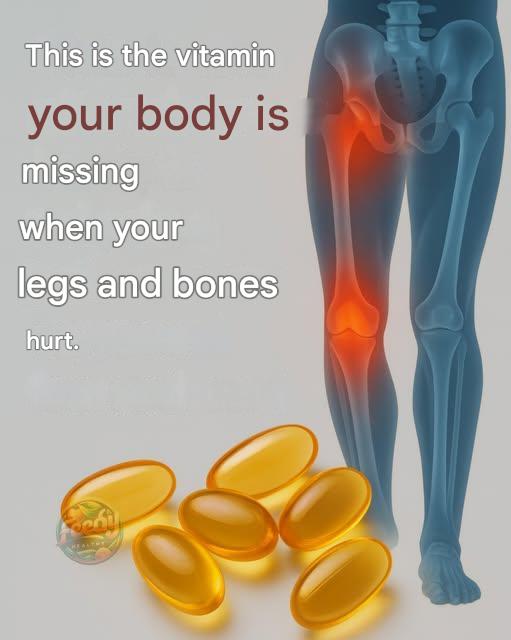What happens when you're deficient: Severe vitamin D deficiency can lead to a condition known as osteomalacia in adults. This is different from osteoporosis, which is a progressive weakening of the bones. Osteomalacia is a softening of the bones, which can cause deep, aching pain, particularly in the legs, hips, and lower back. The pain is often described as a dull ache that worsens with weight-bearing activities. This condition also increases the risk of fractures and can lead to muscle weakness, further contributing to walking difficulties and instability.
Who is at risk: Several groups are particularly prone to vitamin D deficiency. Older adults often have a reduced ability to synthesize vitamin D from sunlight. People who spend little time in the sun due to climate, lifestyle, or living in institutions are also at high risk. Additionally, people with darker skin have higher levels of melanin, which acts as a natural sunscreen and reduces the skin's ability to produce vitamin D. Other at-risk groups include people with conditions that affect nutrient absorption, such as celiac disease or Crohn's disease, and people who are obese.
While vitamin D is primarily known for bone health, vitamin B12 plays a vital role in nerve function and red blood cell formation. A deficiency in this essential vitamin can lead to a wide range of neurological symptoms, including leg pain and weakness.
- How it works: Vitamin B12 is essential for the production of myelin, the protective sheath that covers your nerves. Myelin ensures the proper and efficient transmission of nerve signals. It is also crucial for the synthesis of red blood cells, which carry oxygen throughout the body, including to muscles and bones.
- What happens when you're deficient: A lack of vitamin B12 can lead to peripheral neuropathy , a condition characterized by nerve damage. This can cause tingling, numbness, or a pins-and-needles sensation, often in the feet and legs. The pain can be sharp, burning, or aching and may be accompanied by muscle weakness and balance problems. In severe cases, vitamin B12 deficiency can also lead to anemia , where a shortage of red blood cells causes fatigue, shortness of breath, and pale skin. Reduced oxygen supply can also cause muscle pain and weakness.
- Who's at risk: Vegans and vegetarians are at higher risk because vitamin B12 is found primarily in animal products like meat, eggs, and dairy. Older people are also susceptible because their stomach acid production decreases with age, which can impair the absorption of vitamin B12 from food. People with autoimmune diseases like pernicious anemia or those who have had gastric surgery are also at risk.
Getting the right diagnosis
If you experience persistent leg or bone pain, it's crucial to consult a healthcare professional. A simple blood test can determine if you have a vitamin deficiency. Once identified, your doctor may recommend a combination of dietary changes, supplements, or, in some cases, injections to correct the deficiency. Keep in mind that self-diagnosis can be risky. While vitamins are often helpful, it's important to rule out other serious conditions with professional medical advice.
